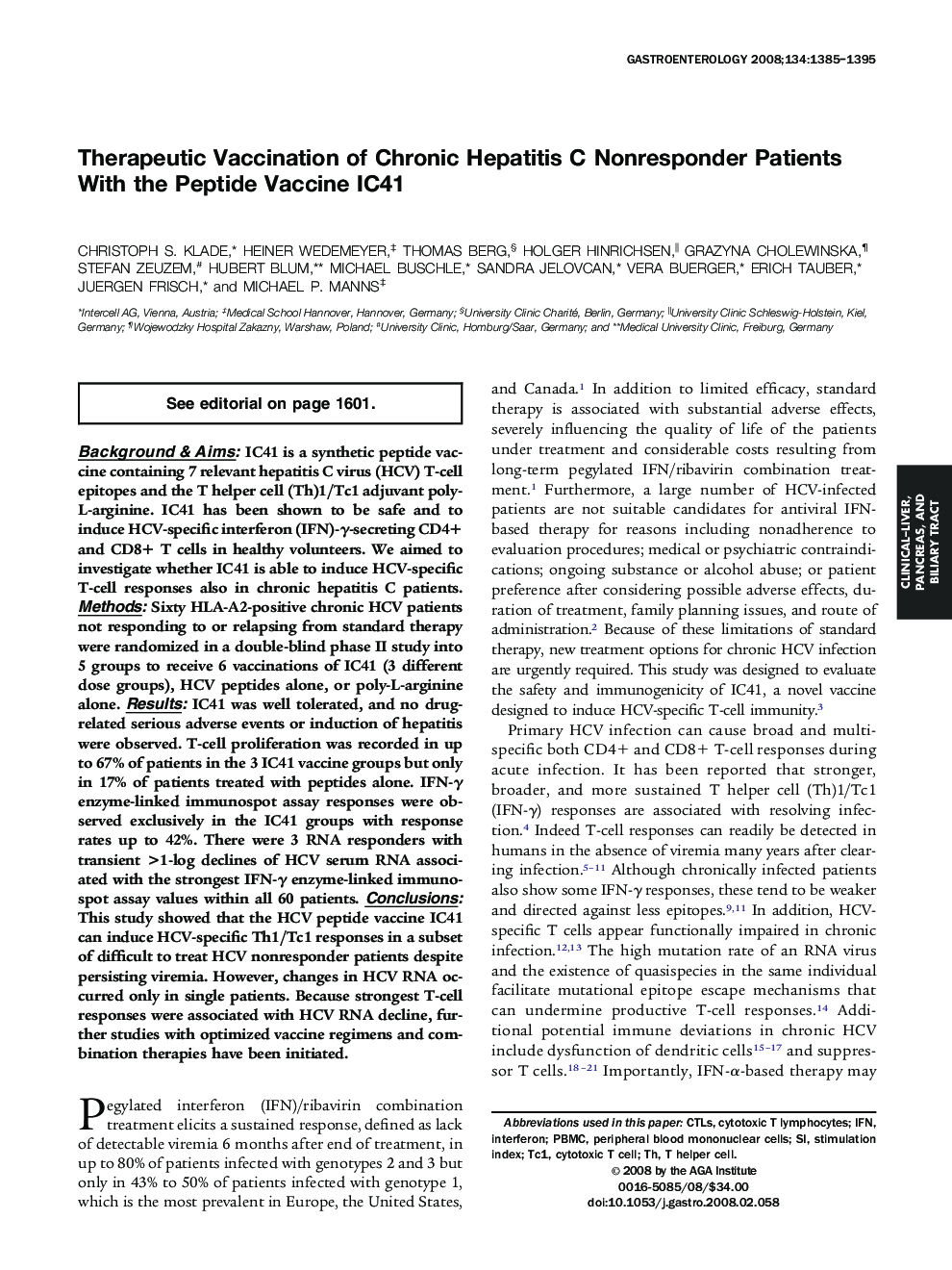| Article ID | Journal | Published Year | Pages | File Type |
|---|---|---|---|---|
| 6096884 | Gastroenterology | 2008 | 12 Pages |
Abstract
Background & Aims: IC41 is a synthetic peptide vaccine containing 7 relevant hepatitis C virus (HCV) T-cell epitopes and the T helper cell (Th)1/Tc1 adjuvant poly-L-arginine. IC41 has been shown to be safe and to induce HCV-specific interferon (IFN)-γ-secreting CD4+ and CD8+ T cells in healthy volunteers. We aimed to investigate whether IC41 is able to induce HCV-specific T-cell responses also in chronic hepatitis C patients. Methods: Sixty HLA-A2-positive chronic HCV patients not responding to or relapsing from standard therapy were randomized in a double-blind phase II study into 5 groups to receive 6 vaccinations of IC41 (3 different dose groups), HCV peptides alone, or poly-L-arginine alone. Results: IC41 was well tolerated, and no drug-related serious adverse events or induction of hepatitis were observed. T-cell proliferation was recorded in up to 67% of patients in the 3 IC41 vaccine groups but only in 17% of patients treated with peptides alone. IFN-γ enzyme-linked immunospot assay responses were observed exclusively in the IC41 groups with response rates up to 42%. There were 3 RNA responders with transient >1-log declines of HCV serum RNA associated with the strongest IFN-γ enzyme-linked immunospot assay values within all 60 patients. Conclusions: This study showed that the HCV peptide vaccine IC41 can induce HCV-specific Th1/Tc1 responses in a subset of difficult to treat HCV nonresponder patients despite persisting viremia. However, changes in HCV RNA occurred only in single patients. Because strongest T-cell responses were associated with HCV RNA decline, further studies with optimized vaccine regimens and combination therapies have been initiated.
Keywords
Related Topics
Health Sciences
Medicine and Dentistry
Gastroenterology
Authors
Christoph S. Klade, Heiner Wedemeyer, Thomas Berg, Holger Hinrichsen, Grazyna Cholewinska, Stefan Zeuzem, Hubert Blum, Michael Buschle, Sandra Jelovcan, Vera Buerger, Erich Tauber, Juergen Frisch, Michael P. Manns,
